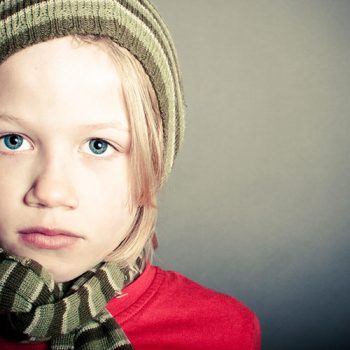UN calls for a federal representative for children and youth in Canada
The Mental Health Commission of Canada has some startling facts on their website concerning mental health in Canada. Among them are the following:
- In any given year, one in five people in Canada experiences a mental health problem or illness, with a global cost to the economy of well in excess of $50 billion;
- Only one in three people who experience a mental health problem or illness — and as few as one in four children or youth — report that they have sought and received services and treatment;
- Of the 4,000 Canadians who die every year as a result of suicide, most were confronting a mental health problem or illness;
- Up to 70% of young adults living with mental health problems report that the symptoms started in childhood;
- Children who have mental health problems are more likely to become adolescents and then adults with mental health problems and illnesses.
The above snapshot provides a dire picture of life for those who are living with a mental illness and those who are attempting to provide supports. It is not surprising that teachers believe working toward improved services for the children and youth in their care should be number one on the Canadian Teachers’ Federation’s (CTF) advocacy agenda.
It is not surprising that teachers believe working toward improved services for the children and youth in their care should be number one on the CTF’s advocacy agenda.
Teachers support the need to continue and broaden the important conversation about child and youth mental illness and mental health in order to raise awareness, and reduce and ultimately eliminate harmful stigma. While teachers feel they are part of the solution, they clearly cannot do it without support (see article Teachers’ perspectives on student mental health in Canadian schools).
The federal government can play a strong leadership role in supporting schools to both promote child and youth mental health and prevent and address mental illness, including ensuring that mental health services are both comprehensive and accessible as specified in the Canada Health Act.
In the fall of 2012, the United Nations Committee on the Rights of the Child commented on Canada’s success regarding our treaty commitment. Among the concerns expressed were:
that overall coordination of the implementation of the Convention assigned to the Interdepartmental Working Group on Children’s Rights (2007) has not been effective in practice. Furthermore, the Committee notes the challenges presented by the federal system of the State party and is concerned that the absence of overall coordination results in significant disparities in the implementation of the Convention across the State party’s provinces and territories.1
Further, the Committee, while noting that many provinces and territories have an ombudsperson for children, remains concerned there is no independent ombudsperson at the federal level.
CTF has and will continue to lobby for the creation of a federal commissioner for children and youth.
The Committee called on Canada to establish “a coordinating body for the implementation of the Convention and the national strategy” and to “take the necessary measures to establish a federal Children’s Ombudsman … to ensure comprehensive and systematic monitoring of all children’s rights at the federal level.2”
CTF has and will continue to lobby for the creation of a federal commissioner for children and youth (see Information for Parliamentarians, PDF- 4.89 MB). One of the tasks of this office can be to protect the rights of children by ensuring that federal legislation is drafted considering Canada’s commitment to children’s rights. In terms of mental health services, the commissioner could ensure, for example, that any renegotiation of the Canada Health Accord take into consideration the rights of children and youth.
Canada is due to report to the UN Committee on the Rights of the Child in July of 2018. It is incumbent upon all of us to ensure that Canada meets its obligations. Let your Member of Parliament know that you expect her/him to protect our most vulnerable including the children we see in our classes every day.


